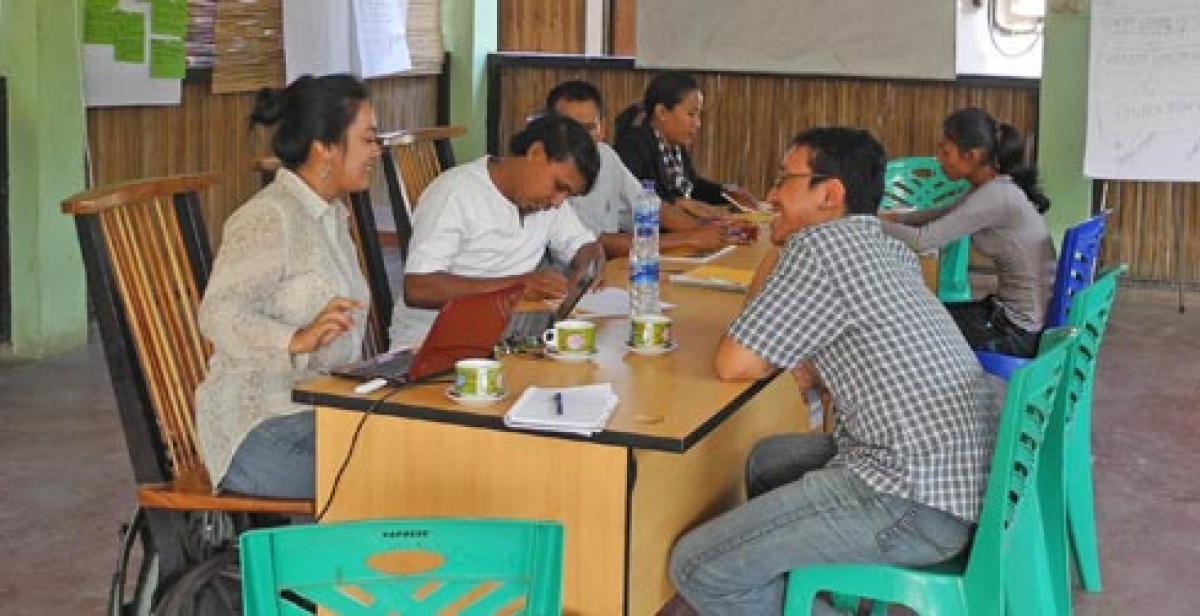My second week in Timor-Leste has been spent visiting more incredible Progressio partners and seeing other Development Workers (DW) in action, writes Progressio's media officer Lucy Jenkinson.
I met with Yasinta Lujina, director of women's network Rede Feto, again on Monday as she was trying to organise the fourth Women's Congress, held every four years in Dili, bringing together women from across Timor-Leste. The Congress is an opportunity for women to discuss the important issues affecting their lives and to hear from prominent speakers in the area of gender equality and women's rights.
Over the years the Congress has had some significant outcomes; including the publishing of a booklet in Tetun and English detailing the recommendations set out by women for each government ministry. As a result of the last Congress a representative form Rede Feto now sits in each government commission and can therefore influence the policies more directly.
"We still have a long way to go," Yasinta sighs, "but things are definitely going in the right direction. They might not change so much in my lifetime but I hope my work will improve women's situation in Timor-Leste for the next generation and the ones after that."
Read Lucy's blog about women's rights in Timor-Leste
New approaches to old problems
On Tuesday three of the DWs out in the districts came to Dili for a meeting with Irish Aid. Cosmos, who works in Maliana, Victor based in Baucau and David who is working in Ermera all gave very positive feedback about the capacity building projects they have undertaken with Progressio partners in these different districts. They have been impressed with the level of people's enthusiasm and commitment, "as well the willingness to try new approaches to old problems," as Victor puts it. Irish Aid are extremely taken with the stories from the ground. The DWs are honest about the challenges they face too; mostly related to ill conceived government projects which fail after not consulting the communities they are suppose to benefit.
How to ensure gender equality
Wednesday was spent with Darmawan, a DW based in Dili and working with the Mata Dalan Institute (MDI) who scrutinise government policy with the aim of improving transparency and accountability. They are currently doing this with regards to the government's rural development policies. The training Darmawan had organised for this session was on gender and how to observe gender equality in policies and budgets. This is something MDI can make sure is incorporated into their own work as well analysing in the government's projects. Darmawan has arranged for an Indonesian lady, called Fera, to deliver this training session as she has a strong background in gender issues but he is on hand all day to jump in and offer practical examples of a theory people are having trouble understanding.
Progressio’s teamwork
A new DW also joined the team in Progressio's Timor-Leste office this week, after an intensive week of language school learning Tetun - the most widely spoken language in Timor-Leste. Freddie is now in his first week working with the National AIDS Commission and is being treated very well by Progressio's first government agency partner in Timor. It is a link everyone here is pleased to have made and one Freddie seeks to nurture.
Freddie, who has also worked with the National AIDS Commission of Nigeria and Papua New Guinea, thinks this is a good placement because: "It opens up opportunities for advocacy and creates good contacts on a personal level within government. Hopefully the people I work with will be pleased and want to continue the relationship with Progressio in the future," he says.
There is certainly never a dull moment in the Progressio office in Dili. It is a hive of activity, full of people I will miss on my return to the UK - especially Yanne, the Programmes Officer, and lone woman in the office who makes sure all the men know what they’re doing!
Photo: development worker Darmawan helping to run a training session for staff of the Mata Dalan Institute.



